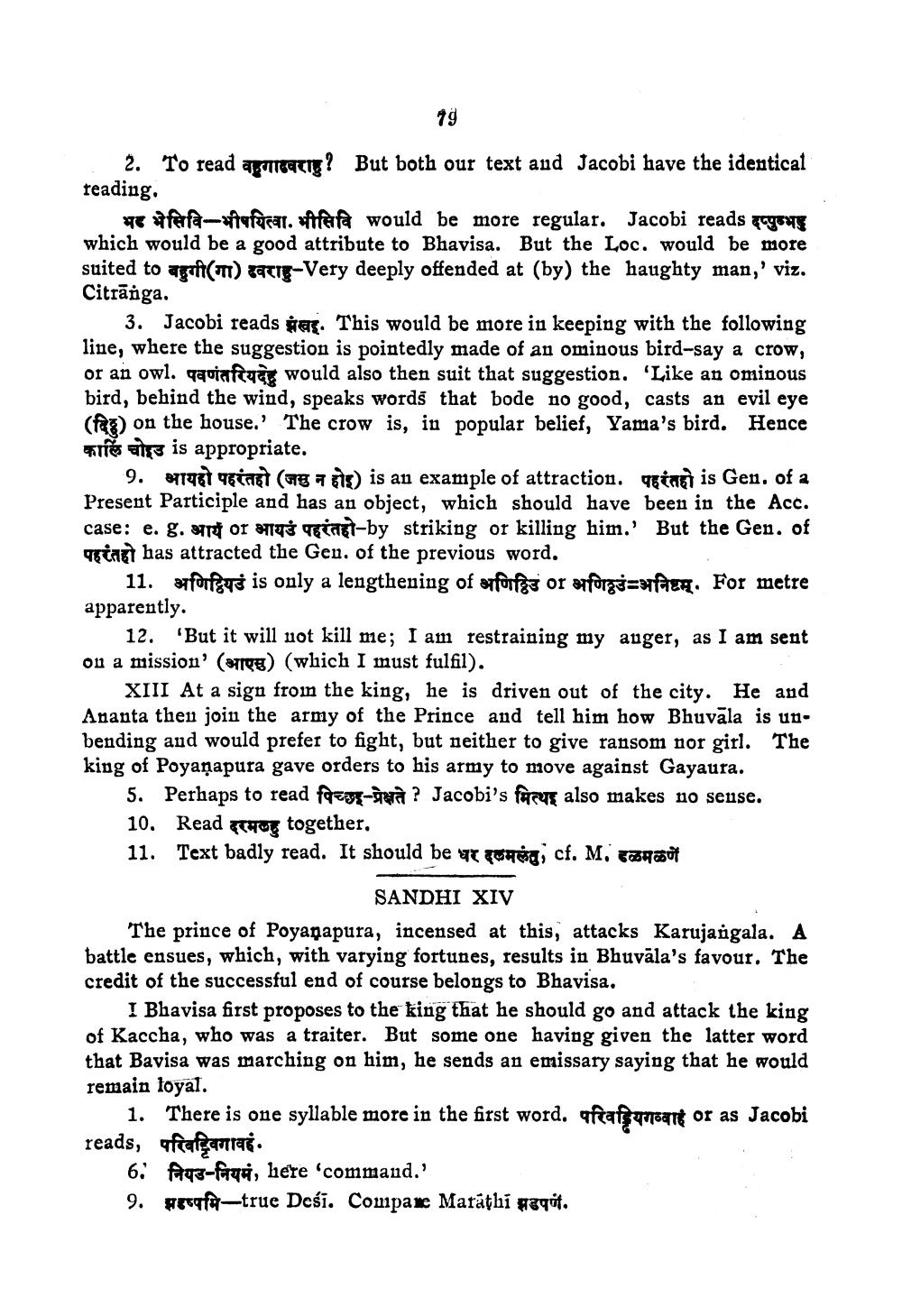________________
19
2. To read alatig? But both our text and Jacobi have the identical reading,
ifafa-teforrar. a would be more regular. Jacobi reads you which would be a good attribute to Bhavisa. But the Loc. would be more suited to annoT) CETTE-Very deeply offended at (by) the haughty man,' viz. Citrānga.
3. Jacobi reads gras. This would be more in keeping with the following line, where the suggestion is pointedly made of an ominous bird-say a crow, or an owl. quiaft would also then suit that suggestion, 'Like an ominous bird, behind the wind, speaks words that bode no good, casts an evil eye (fo) on the house.' The crow is, in popular belief, Yama's bird. Hence An alcs is appropriate.
9. भायहो पहरंतहो (जसु न होइ) is an example of attraction. पहरंतहो is Gen. of a Present Participle and has an object, which should have been in the Acc. case: e. g. Or 743 Tagi-by striking or killing him.' But the Gen, of qiatt has attracted the Gen. of the previous word.
11. अणिट्ठियउं is only a lengthening of अणिहिउ or अणि अनिष्टम्. For metre apparently.
12. "But it will not kill me; I am restraining my auger, as I am sent on a mission' (IE) (which I must fulfil).
XIII At a sign from the king, he is driven out of the city. He and Ananta theu join the army of the Prince and tell him how Bhuvāla is unbending and would prefer to fight, but neither to give ransom nor girl. The king of Poyaņapura gave orders to his army to move against Gayaura.
5. Perhaps to read faeg-awa? Jacobi's fare also makes no sense. 10. Read The together, 11. Text badly read. It should be grandi cf. M. c auf
SANDHI XIV The prince of Poyanapura, incensed at this, attacks Karujaigala. A battle ensues, which, with varying fortunes, results in Bhuvāla's favour. The credit of the successful end of course belongs to Bhavisa.
I Bhavisa first proposes to the king that he should go and attack the king of Kaccha, who was a traiter. But some one having given the latter word that Bavisa was marching on him, he sends an emissary saying that he would remain loyal.
1. There is one syllable more in the first word. afatmare or as Jacobi reads, aficat caras
6: faqs-faqt, here 'command.' 9. metafor-true Deśi. Compare Marathi nequit.




